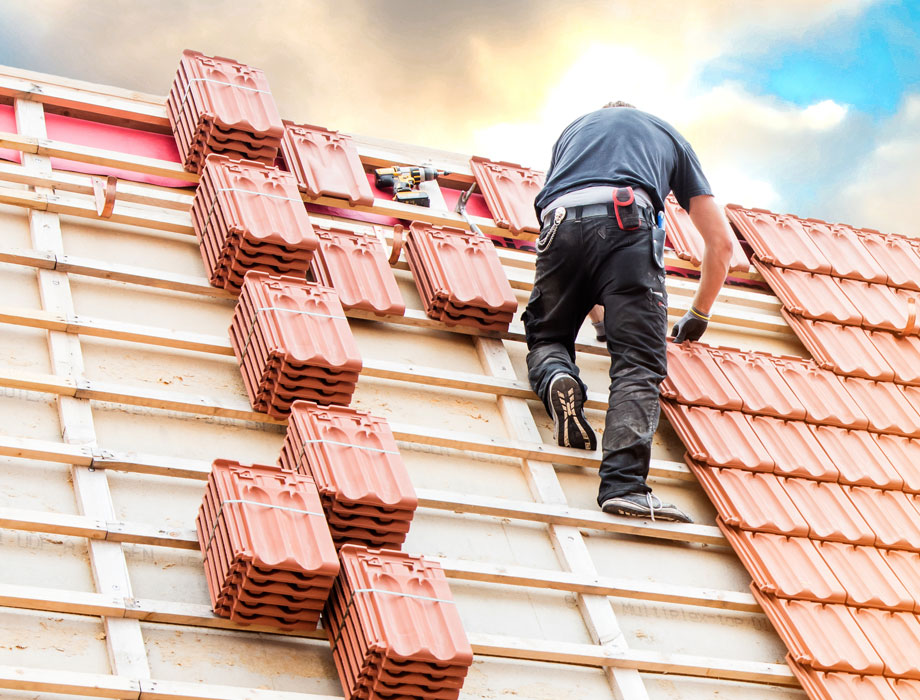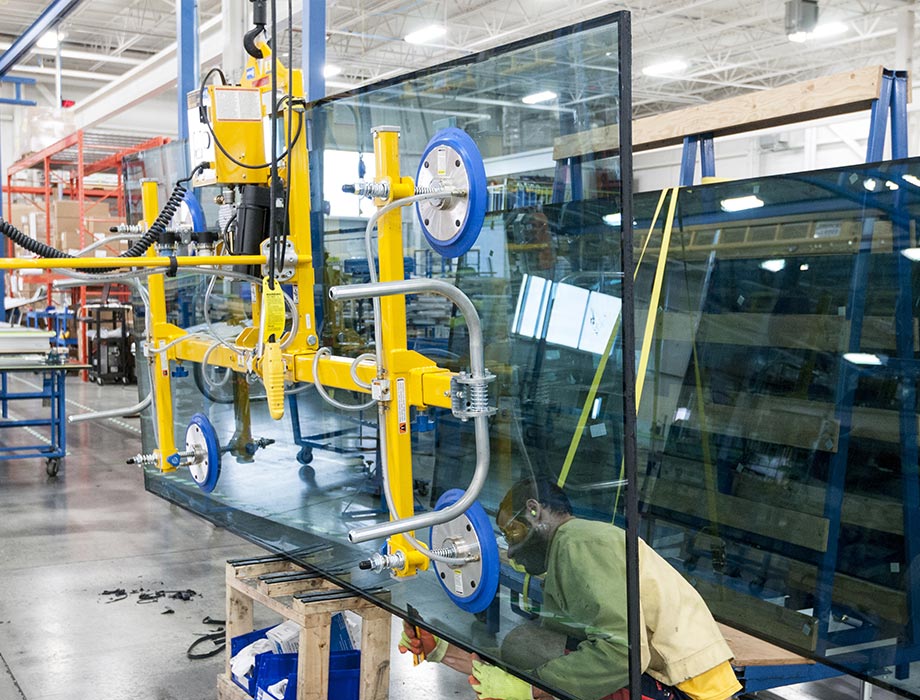
The manufacture of building materials is a broad field and offers innumerable opportunities to employ different valves from Schubert & Salzer. Typical control valve applications can be found in preparation and processing of base materials for the production of roofing shingles, asphalt production for commercial roofs or fiberglass insulation materials. Sliding gate valves, type 8021 or a motorized version 8038 and 8037 with EEX protection for hot oil are used for precise temperature control for a variety of thermal fluids. Exact temperature control is important to producing high quality roofing shingles.
For the production of glass sliding gate valves type 8021 and 8024 control phenolic resins. The compact design of these valves in combination with their top mounted positioner make them suitable for the most restricted installation environments.
In plate glass production angle seat valves are often utilized to pull and hold vacuum in pneumatic conveying equipment to move the sheets quickly from the production area to packaging. The valves hold up extremely well and are able to control in applications requiring high vacuum. Another application is the supply of dye pigments and processing of wastewater through Schubert & Salzer pinch valves, where a pneumatically compressed tube stops or releases those viscous, slurry or powder-like products. Also the robust ball sector valves have proven themselves in the rough environment of cement production. In cement, large centrifuges or grinding mills make the fine gray powder. Ball sector valves are used in pneumatic conveying control of the cement which delivers the final product.

Glass is produced by melting quartz sand (SiO2), soda (Na2CO3) and lime (CaCO3), while additional ingredients may be added to facilitate certain properties or colors in the glass. The glass quality is determined by a very high control precision during the supply of O2, Oxyfuel and natural gas into the melting furnace. Depending on its composition the melting temperature can vary between 1800 and 2900 °F. This optimized mixture of O2 and fuel at each individual burner depends on a high control precision delivery by the control valve. The Schubert & Salzer sliding gate control valves providing very fast reaction times due to their short strokes and small actuators have shown to be an ideal solution in these applications. Stroke lengths between 6 and 9 mm along with very low driving forces allow a very fast precision control, enabling dynamic changes of flow rates necessary during the smelting process. Additionally, after the smelting process sliding gate valves are used to control urea or ammonia for desulfurization of the exhaust gases. Sliding gate valves can also be supplied for hazardous areas requiring explosion proof classifications.



